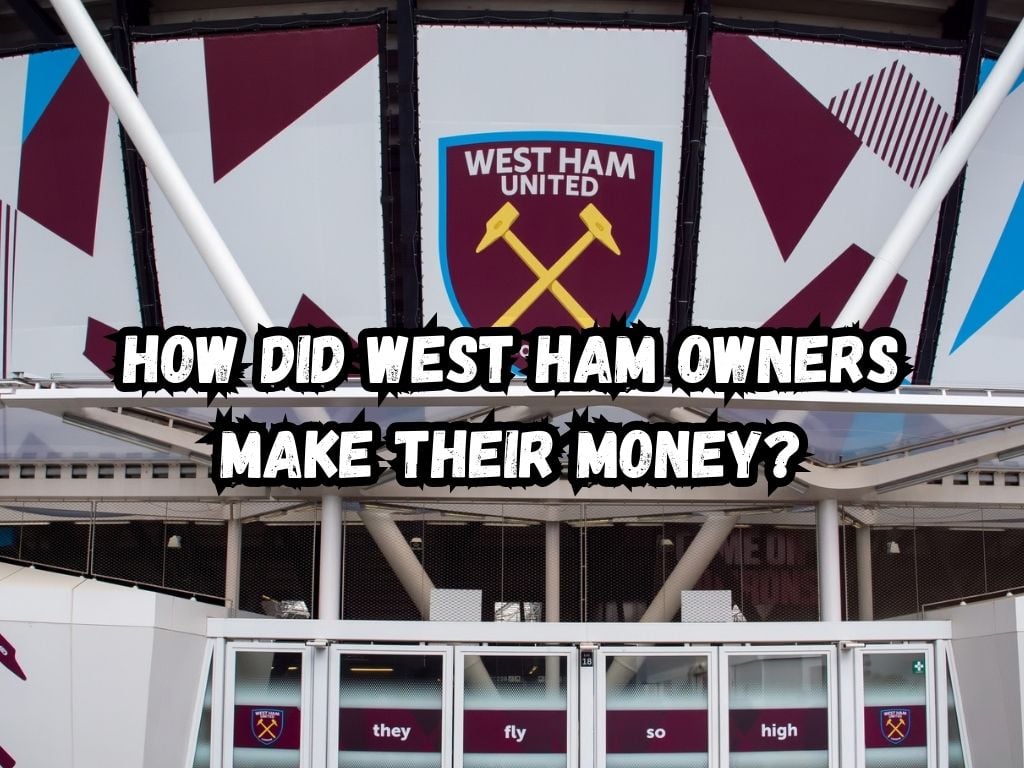West Ham United Football Club has become an integral part of the English Premier League, captivating fans with their history, tradition, and passionate supporters.
While the team’s performance on the pitch has been celebrated, the success would not have been possible without the vision and financial backing of its owners. So, how did West Ham owners make their money?
In this article, we delve into the remarkable journey of David Sullivan and David Gold, the men behind West Ham’s rise to football royalty, tracing their path from humble beginnings to immense wealth.
How did West Ham owners make their money? Background of David Sullivan
David Sullivan, born on February 1, 1949, in Cardiff, Wales, grew up in a modest household. Despite financial constraints, Sullivan exhibited an entrepreneurial spirit from an early age.
After completing his education, he delved into the world of business and made a name for himself as a shrewd entrepreneur. However, it wasn’t until his foray into the adult industry that he experienced true financial success.
At the age of 19, Sullivan started a mail-order business, specializing in adult magazines.
Recognizing the potential in the market, he expanded his operations to include sex shops and adult bookstores.
These ventures proved immensely profitable, establishing Sullivan as one of the leading figures in the industry.
As he continued to grow his empire, he invested in various other businesses, including property development and media companies.

Rise of David Gold
In stark contrast to Sullivan, David Gold was born into a destitute family in East London.
Growing up in a cramped council flat, Gold learned the value of hard work from an early age.
Determined to overcome his circumstances, he ventured into various businesses, including a window cleaning service and a travel agency.
Gold’s breakthrough moment came with the establishment of Gold Group International, a printing and publishing company.
Through astute business decisions and perseverance, Gold transformed the company into a multi-million-pound empire.
This success paved the way for his entry into the world of football ownership.
Joint Venture: West Ham United
In 2010, David Sullivan and David Gold joined forces to acquire a majority stake in West Ham United Football Club.
The joint venture signaled a new era for the East London club. The owners wasted no time in making their mark, investing heavily in the team and the stadium.
Their vision was to propel West Ham to new heights of success, both on and off the field.
Under Sullivan and Gold’s ownership, West Ham underwent significant changes. They spearheaded the move from the historic Boleyn Ground (Upton Park) to the London Stadium, which hosted the 2012 Olympic Games.
The transition provided the club with a modern, state-of-the-art venue with increased seating capacity, enabling them to attract a larger fan base and generate more revenue.
Criticism and Controversies
Despite their achievements, Sullivan and Gold have faced their fair share of criticism and controversies. Some detractors point to their backgrounds in the adult industry, questioning their suitability as club owners.
Others criticize their handling of club finances, suggesting that they prioritize profits over on-pitch success.
One of the main sources of criticism has been their approach to player recruitment and investment in the squad. While West Ham has achieved relative stability in the Premier League, some fans argue that the club should aim for higher levels of success by making more ambitious signings.
Critics claim that the owners have been reluctant to spend large sums on star players, which has led to occasional discontent among the supporters.
In response to these concerns, Sullivan and Gold have taken steps to address financial issues, including restructuring the club’s debt and working towards sustainable financial stability. They have emphasized the importance of responsible ownership and the need to balance the books, ensuring the long-term viability of the club.
While opinions may be divided, it is undeniable that the owners have played a pivotal role in West Ham’s journey from a struggling team to a competitive force in the Premier League.
Philanthropic Endeavors
Beyond their involvement in football, Sullivan and Gold have consistently demonstrated their commitment to giving back to the community.
Through the charitable arm of West Ham United, they have initiated numerous programs aimed at supporting local causes, including education, health, and social welfare.
Their philanthropic endeavors have had a significant impact on the lives of individuals within the East London community.
Sullivan and Gold have also been actively involved in initiatives to support grassroots football development in East London.
They have invested resources into youth academies and training facilities, nurturing local talent and providing opportunities for young aspiring footballers.

Frequently Asked Questions
How did David Sullivan amass his wealth before becoming a West Ham owner?
David Sullivan built his wealth through ventures in the adult industry, including adult magazines, sex shops, and adult bookstores. He also invested in other businesses such as property development and media companies.
What were David Gold’s business ventures before owning West Ham?
Before owning West Ham, David Gold had various business ventures, including a window cleaning service and a travel agency. However, his breakthrough came with the establishment of Gold Group International, a printing and publishing company.
What changes did David Sullivan and David Gold implement when they acquired West Ham?
After acquiring West Ham, Sullivan and Gold invested heavily in the team and the stadium. They spearheaded the move from the Boleyn Ground (Upton Park) to the London Stadium, providing the club with a modern, state-of-the-art venue. They also focused on improving financial stability and responsible ownership.
What criticisms have Sullivan and Gold faced as West Ham owners?
Critics have questioned their suitability as club owners due to their backgrounds in the adult industry. Additionally, some fans have criticized their approach to player recruitment, claiming they are reluctant to spend large sums on star players. There have also been concerns raised about their prioritization of profits over on-pitch success.
What philanthropic endeavors have Sullivan and Gold been involved in?
Sullivan and Gold have shown a commitment to giving back to the community through West Ham United’s charitable arm. They have initiated programs supporting local causes, including education, health, and social welfare.
They have also invested in grassroots football development in East London, supporting youth academies and training facilities.
Conclusion
The success of West Ham United Football Club can be attributed, in part, to the astute business acumen and financial backing of owners David Sullivan and David Gold.
From humble beginnings in contrasting circumstances, the owners rose to prominence through their business ventures before uniting to transform West Ham into a club that competes at the highest level.
Despite criticism and controversy, their financial investment and philanthropic endeavors have left an indelible mark on the club and the East London community.
As West Ham continues to forge its path in the Premier League, the legacy of these owners will forever be intertwined with the club’s history.


 Tags:
Tags:










